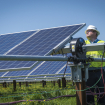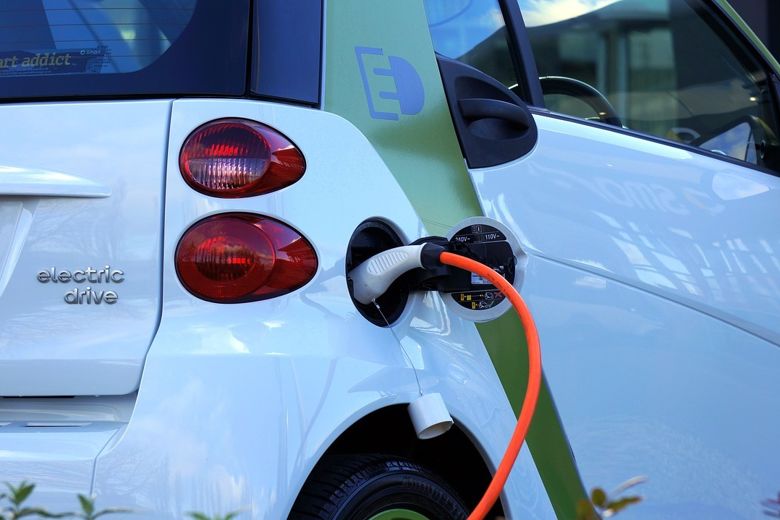Read The Full Article On: Greentechmedia
While much of the energy sector struggled under lockdown, vehicle-charging startups continued to win over investors such as BP.
The coronavirus pandemic forced layoffs and spending cuts across the solar industry and hammered global electric vehicle sales. But startups serving the EV charging market have continued pulling in new investments in spite of the uncertainty.
In recent weeks, managed fleet charging specialist Amply executed a $13.2 million raise. Investors gave $25 million to FreeWire Technologies to ship chargers that use batteries to reduce the strain on the distribution grid and the costs associated with interconnection.
The nascent wireless charging field achieved notable milestones as well. HEVO Power raised a $5.5 million Series A, including convertible notes, after years spent quietly building a wireless charging pad. Lumen Group secured the first product safety certification for wireless charging from independent testing body UL.
Just last week, Australian fast charger company Tritium secured a $45 million debt private placement from the investment arm of U.S. health insurance company Cigna.TOP ARTICLES
 UK’s Largest Solar Project Approved, Will Snub Government Subsidies
UK’s Largest Solar Project Approved, Will Snub Government Subsidies 90% Clean Grid by 2035 Is Not Just Feasible, But Cheaper, Study Says
90% Clean Grid by 2035 Is Not Just Feasible, But Cheaper, Study Says Hawaiian Electric Reveals Full List of Winners From Its Big Energy Storage Procurement
Hawaiian Electric Reveals Full List of Winners From Its Big Energy Storage Procurement
WHITE PAPERS
Leveraging the Cloud for a Resilient, Secure, and Customer-Centric Utility
Repowering Large-Scale PV Systems Using DC Power Management
U.S. Solar Market Insight
Coronavirus power and renewables market impact update
“Regardless of vehicle sales, the trends for EVs are just so ridiculously clear in the medium and long term,” said Abe Yokell, managing partner at Congruent Ventures, which invested in Amply. “We’re investing on what happens in three to seven years, so the next year or two [are] much less relevant.”
Taking the long view on electrification
The extent of the damage for EV sales depends on who you ask.
In March, Wood Mackenzie estimated that the global EV market, instead of setting a new annual record, would fall 43 percent in 2020 compared to 2019.
As time passed and new data came in, the outlook improved somewhat. BNEF in May predicted that the global electric passenger vehicle market would shrink by 18 percent in 2020, performing better than internal combustion engine cars, whose sales it expects to fall 23 percent. BNEF believes internal combustion engine car sales peaked in 2017 and won’t beat that level, even after a post-crisis recovery.
The ultimate impact on global EV sales depends on how long a global economic slowdown lingers. If business picks up in the fourth quarter, 2020 could even show modest EV sales growth over 2019. Europe is already looking strong, thanks to supportive policies, and China’s EV market is rebounding.
BP Ventures, the strategic investment arm of the oil and gas giant, led the round in FreeWire. The macro-level uncertainty did not stop the firm from supporting FreeWire in the expected follow-on to a 2018 funding round, which BP also led, said David Hayes, BP Ventures chief investment officer and managing director for the Americas.
“The overlay of COVID and how the economic environment is impacting EV sales is there in the back of our minds, but I wouldn’t say it’s something we factored in in a really heavy-handed way,” Hayes said. “Thus far, I don’t think we’ve flexed the prior assumptions.”
BP committed to net-zero carbon emissions by 2050, and electrification of transportation serves that goal. It’s BP Ventures’ job to strategically invest in technologies that could be deployed by the supermajor. In terms of vehicle electrification, Hayes is interested in replicating the experience of charging a gas-powered car, which inspired investments in fast-charging technologies.
The current drop in oil prices, which lowers the cost of filling up a gas tank, has not shifted the outlook for the 111-year-old oil company, he noted.
“We take a long-term view, and the oil price goes up and down — we’re in a commodity business,” Hayes said.
In a few years, electric cars will become cheaper than their gas-burning counterparts, said Geoff Eisenberg, partner at Ecosystem Integrity Fund. The ensuing adoption of batteries on wheels will merge the auto industry and the electric grid sector, with massive ramifications for both. Investors that buy into that vision can wait out a temporary pause.
“It really just depends on the timeline of the investor and where the company is,” Eisenberg said. “Every investor will price-in their own assumptions for the depth and length of the slowdown compared to prior growth projections.”
Build before the boom
Entrepreneurs in the EV charging space constantly warn that charging equipment is nowhere near the level of proliferation needed to support the widespread adoption of electric vehicles. A temporary slowdown in car purchases, then, could allow time for infrastructure to catch up.
FreeWire said its new funding will support initial deployment of its battery-supported Boost charging device, which gives drivers a fast-charge experience with much lower power usage from the grid. Doing so saves money and time on the upgrades often required to channel electricity into high-powered chargers.
BP plans to roll out Boost chargers at gas stations once it secures final UL safety certifications, Hayes said.
Some charging business models are more insulated from economic upheaval. Individual drivers may postpone new car purchases, scrambling assumptions about the utilization of public chargers. But fleets replace their vehicles on a fixed schedule based on total cost of ownership calculations, Amply founder Vic Shao told GTM.
“Fleets will continue to take advantage of the situation and get better pricing from auto [original equipment manufacturers] to continue to refresh their fleets with new cars,” he said previously.
Asset utilization is much easier to design and control for in fleet charging, Congruent Ventures’ Yokell said, which makes for “a more understandable investment case.”
The slowdown in the EV market also provides a chance to reassess how companies are situated for long-term growth.
“It was a hot, buzzy sector, and I’m not sure if anything is hot and buzzy right now except maybe food delivery or e-commerce,” Eisenberg said. “It’ll bring the space back down to a good, rational spot.”

